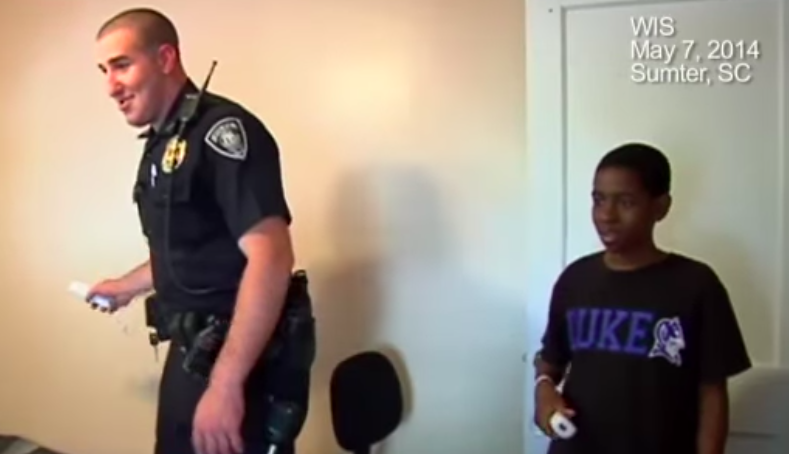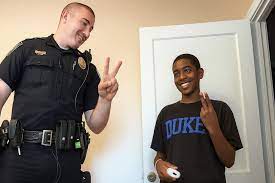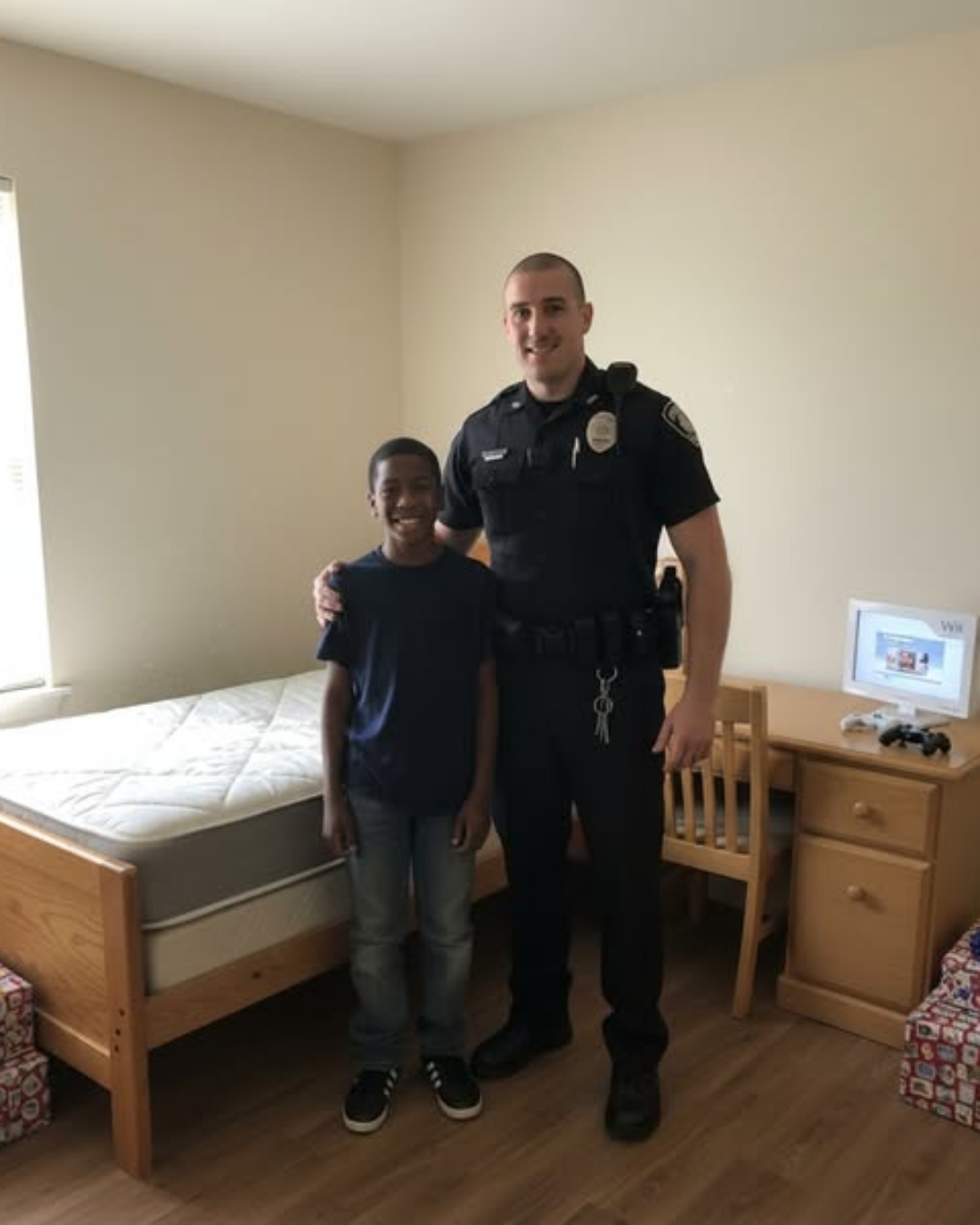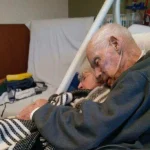Officer Transforms Boy’s Empty Room

From a Deflated Mattress to a Dream Room: How One Officer Changed a Boy’s Life
At 2 a.m., a 13-year-old boy did something most people wouldn’t imagine. He picked up the phone and dialed 911. Most calls to emergency services at that hour involve accidents, fires, or crime. This call was different. The boy wasn’t in danger. He wasn’t calling for help in a conventional sense. He was tired—physically and emotionally. He was exhausted from sleeping on a deflated air mattress in a completely empty room.

When Officer Gaetano Acerra arrived, he expected the usual night-time disturbances: perhaps a restless teenager acting out, or some minor emergency. Instead, he found a quiet, lonely boy sitting on the floor of a bare room. The walls were empty, the floor uncluttered, and there was no furniture to be seen. What struck Acerra most wasn’t just the emptiness of the room—it was the weight of the boy’s exhaustion, both from sleep deprivation and the invisible burden of growing up without the basic comforts many take for granted.
The boy’s grandmother, his primary caregiver, loved him deeply. But with limited means, she could only provide the bare necessities. The deflated air mattress, a small blanket, and the faint hum of a nightlight were all that separated him from the cold, empty space around him. For most officers, the encounter would have ended with a simple report noting the family’s hardship. Acerra, a father himself, could not walk away. Something inside him compelled him to act.
Three days later, he returned—not with paperwork, citations, or formalities—but with a pickup truck full of surprises. Inside were items that transformed the boy’s life in a tangible and symbolic way: a sturdy, real bed with clean sheets, a desk and chair to give him space to study and grow, lamps to brighten his nights, decorations to make the room feel like home, and even a Nintendo Wii, a small but meaningful touch of joy.
“Every kid needs something to look forward to,” Acerra said. His words capture the essence of the act: this wasn’t charity for the sake of recognition. It was empathy in action, a simple but profound gesture to remind a young boy that he mattered and that someone cared.
The impact was immediate. The boy, once weighed down by exhaustion and the emotional weight of his circumstances, lit up with joy. His defeated expression melted into a genuine smile. For the first time, his room felt like a place of comfort, a personal sanctuary rather than a stark reminder of what he lacked. For Acerra, witnessing this transformation reinforced a simple but powerful truth: sometimes you just know what’s right.
This story is a testament to the quiet heroism that often goes unnoticed. Acerra didn’t need recognition, social media praise, or accolades. He simply saw a need and responded with compassion and action. His decision to go above and beyond the call of duty highlights a critical lesson: heroism doesn’t always come from enforcing laws or wearing a uniform in the conventional sense. Sometimes, it comes from acts of empathy, thoughtfulness, and understanding.

For the boy and his grandmother, the transformation of the room represents far more than new furniture. It symbolizes hope, dignity, and the idea that even in challenging circumstances, there are people willing to step in and make a difference. It’s a reminder that support and kindness can transform not just physical spaces but emotional landscapes as well.
Officer Acerra’s actions also speak to the broader role that individuals can play in the lives of those around them. In a world where it is easy to turn away or assume someone else will help, Acerra demonstrated that small, thoughtful actions can create monumental change. A bed, a chair, a few lights, and a gaming console—these items are more than objects. They are symbols of care, validation, and the acknowledgment that every child deserves comfort and joy.
Through this story, the boy learned that he is seen, that his needs matter, and that even in quiet moments of struggle, there is hope. Acerra showed that sometimes, the best way to serve a community is not only by responding to emergencies but by noticing the unseen struggles—the silent burdens—and acting to lighten them.
In the weeks following, the boy’s room has become more than a space to sleep. It’s a place to dream, to study, to play, and to grow. Acerra’s gift created an environment where possibility replaces despair, joy replaces emptiness, and hope replaces fatigue.
For Officer Gaetano Acerra, the act was simple, yet its impact is immeasurable. “Sometimes you just know what’s right,” he said, reflecting on the moment. And in his actions, he provides a powerful lesson for us all: the greatest impact often comes not from grand gestures or public recognition, but from noticing a need and taking meaningful, compassionate action.

This story reminds us that heroism can be quiet, yet life-changing. It doesn’t always require a uniform, a title, or authority—it requires empathy, awareness, and a willingness to step in when others might look away. Officer Acerra’s response to a simple 911 call transformed a boy’s life, his bedroom, and his sense of hope. It shows that even the smallest acts of kindness can ripple outward, leaving lasting effects on the lives they touch.
For the boy, his grandmother, and everyone who hears this story, the deflated air mattress is no longer a symbol of limitation—it is a memory of a time when compassion and courage turned despair into joy. And for the rest of us, it is a reminder that the world can always use more people willing to notice, care, and act.











